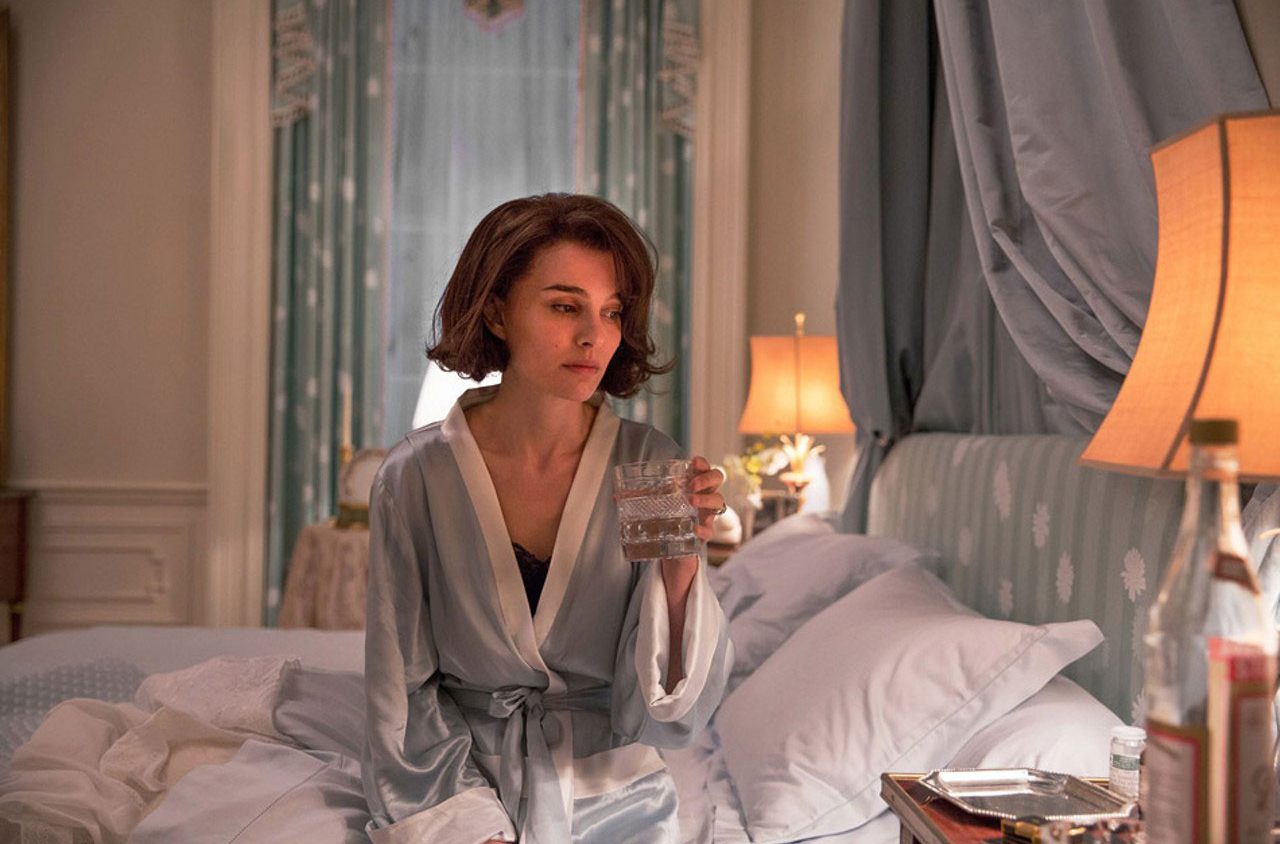The assassination of President John F. Kennedy in a Dallas motorcade on Nov. 22, 1963 was a national tragedy, but it was also a nightmare, and one from which we’ve never recovered. The parameters of tragedy are timeless and defined, but a nightmare is a different beast altogether: disorienting, chaotic, darkly impressionistic and symbolic of reality in a way that is ominous, apocalyptic and forever ill at ease.
In Jackie, Chilean director Pablo Larrain opts to sketch the days following JFK’s murder up to his funeral procession as a nightmare seen through the eyes of the first lady (Natalie Portman), and the results are profoundly unsettling and haunting. If, as many have argued, a horror film can double as a political parable, Larrain makes it clear that indeed the reverse is true.
From the opening scenes, Jackie — with its foreboding soundtrack of descending cello chords and its tight, paranoiac close-ups cut by stark panoramas that recall Kubrick’s frigid geometry — lets us know that this is no ordinary biopic. Instead, this is a horror story about a proud woman trapped inside an impossible moment of reckoning from which there is no escape.
As movingly portrayed by Portman, Jackie is fierce and fragile and traumatized all at once, but her grief is immediately and utterly subsumed by history; she is acutely aware that several narratives — about her husband, about her, about the assassination, about the country — are competing for relevance, and as she struggles to control and mold the story, the weight of its significance becomes unavoidable and crushing. The film is framed around her interview with a reporter (Billy Crudup, listed only as “the journalist,” just one hint of the movie’s intentions), and as it flips back and forth in time, it evokes the cascading horror of the events leading up to and following the assassination.
It’s interesting and telling that a Chilean director — someone personally acquainted with the bitter atrocities of Pinochet’s fascist regime — would choose to portray a defining moment in this country’s political and social history as a sort of personal purgatory of history gone haywire. Channeling directors like Roman Polanski (especially Rosemary’s Baby) and William Friedkin (The Exorcist), Larrain paints Jackie as a woman subjected to demonic forces beyond her reckoning; that those forces are technically political rather than supernaturally demonic seems merely semantic.
As Marx once said, the tradition of all the dead generations weighs like a nightmare on the minds of the living, and in Jackie, that nightmare becomes so immediate and all-consuming that the very foundations of her existence are called into question. It is the soul that is at stake here. At one point, Jackie tells her priest (John Hurt) that she prays every night for death: The confession is less resigned than defiant. Larrain, by moving away from documentary facts into the realm of poetic truth, manages to wrest Jackie Kennedy from the iconography that would empty her of all but her status as the dead president’s wife.
Instead, the film portrays her as a complexly divided woman — a woman who must fight for self-definition while grappling with forces that are cataclysmic and epochal, and that would seek to put her in her place alongside the two-dimensional ghouls of our national hagiography. Not since Winter’s Bone (one of the most unheralded feminist films of the past 20 years) have I seen a movie that so deeply and honestly honored its female lead, by granting her the dignity of becoming herself, rather than simply having her stand-in for a some two-dimensional idea of what a woman should be.
In Jackie, to be or not to be isn’t really the question; it’s the impossible answer, the forced choice of a woman’s role in society and history, and it makes this an unforgettable film — a fractured fable and feminist horror story about where we are and how we got here. (Opens Friday, Jan. 13, at Broadway Metro)
